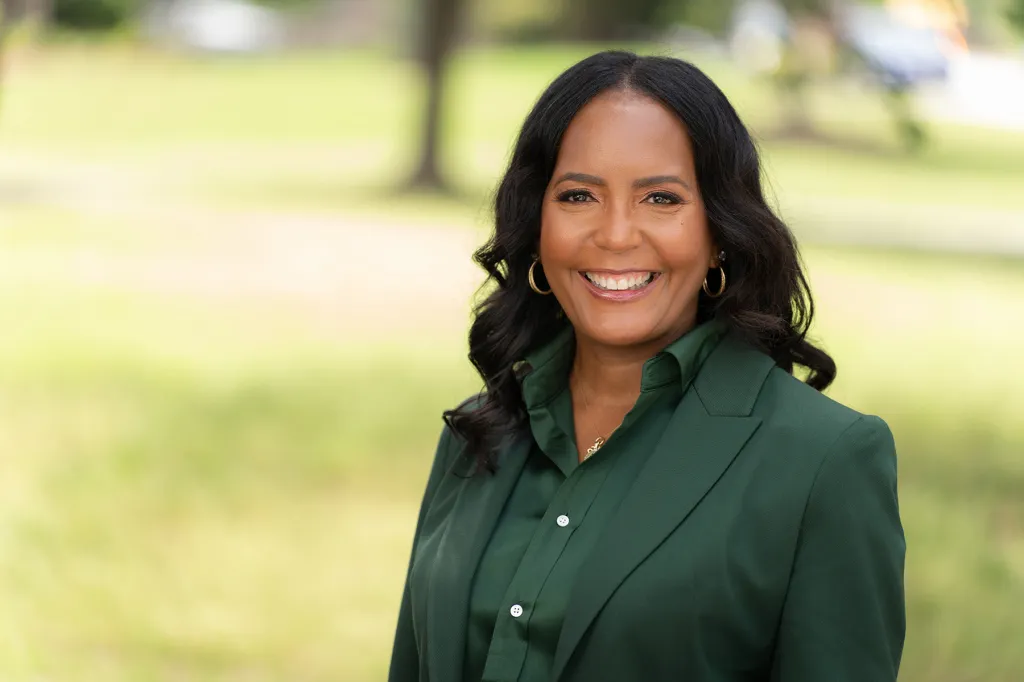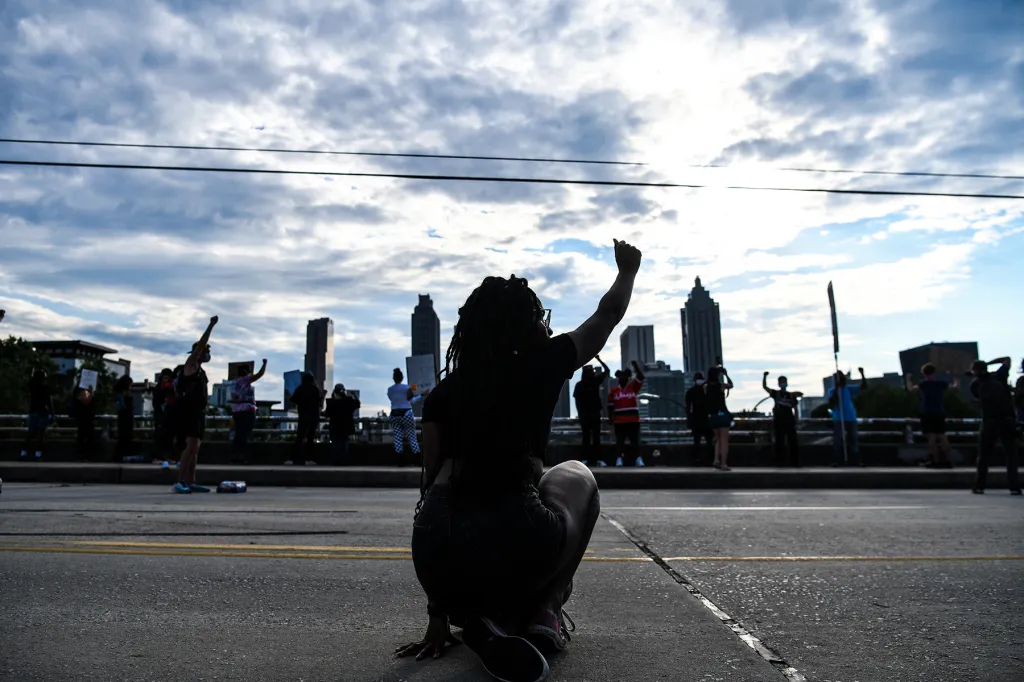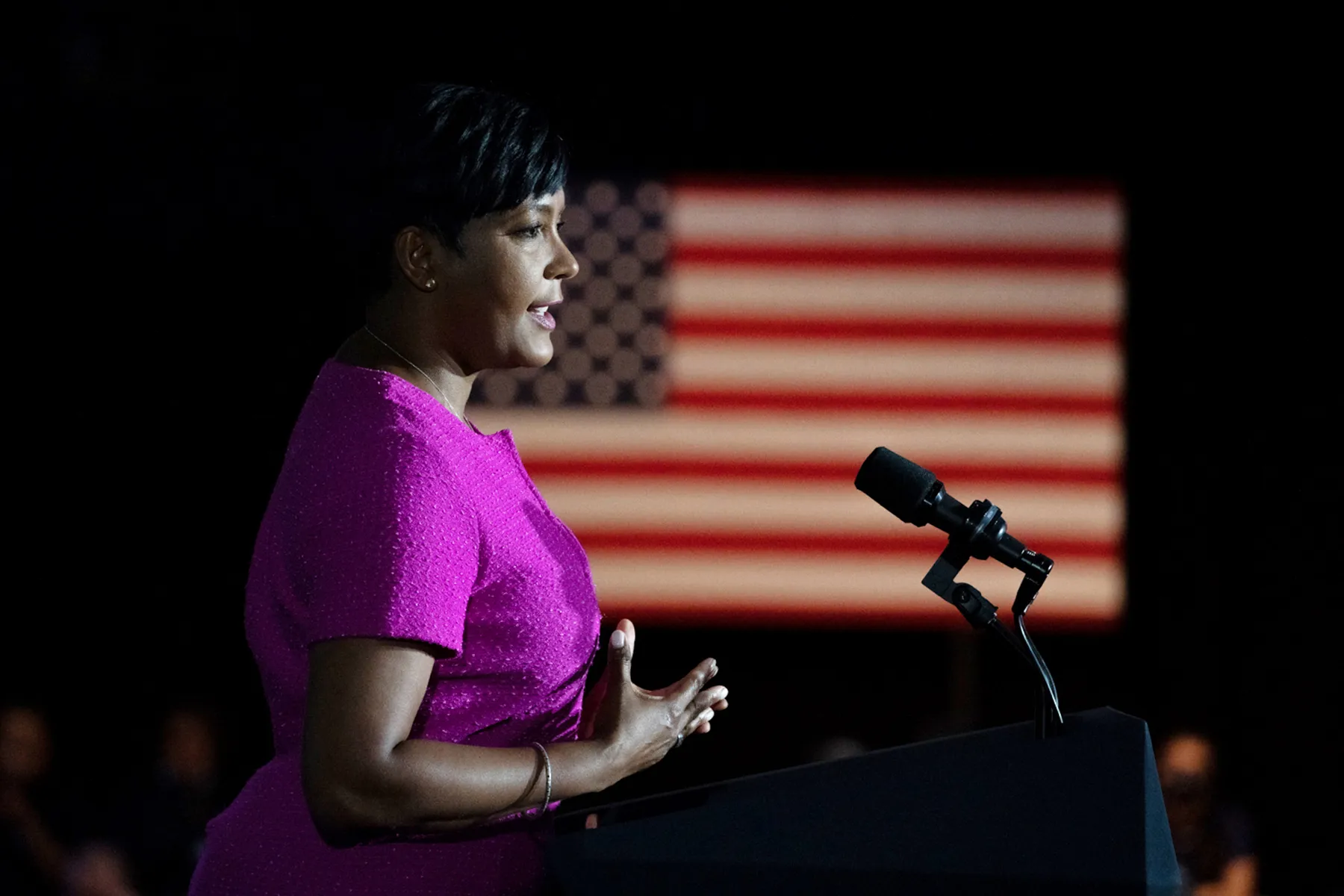Former Atlanta Mayor Keisha Lance Bottoms is formally launching a campaign for Georgia governor, saying she will take on what she calls President Donald Trump’s “disaster” of a second term in a governor’s race that remains wide open.
Bottoms officially launched her gubernatorial campaign Tuesday, telling The 19th that the president’s “erratic policies” have left Georgians anxious and uncertain about the future.
“We’re all dealing with the chaos of Trump 2.0,” said Bottoms, a Democrat. “It’s creating economic instability and anxiety for people who don’t know if they’re going to have a job tomorrow. … His leadership is impacting everything across Georgia, from whether we’re talking about tariffs that are impacting our coastal communities to how much people pay when they go to Walmart to shop.”
No Democrat has led Georgia since 2003, but the race is considered a tossup in what has become a critical swing state. Georgians went for Donald Trump in November by a two-point margin after backing Joe Biden in 2020. Notably, the northwest suburbs of Atlanta were among the few places across the nation where Democrats saw gains over their 2020 results.
The Georgia governor’s race, one of many critical contests in 2026, will test Democrats’ message and path forward after the searing losses of 2024.
Bottoms’ campaign launch ad starts with an anecdote about her grandmother, who looked out for her children and grandchildren with daily morning calls. “We knew someone had our back,” Bottoms says, before quickly pivoting to Trump. “These days most Georgians are right to wonder, ‘Who is looking out for us?’”

The ad takes on Trump’s tariffs and the rising cost of living, the power “unelected billionaire” Elon Musk was given to make cuts across the federal government, and the mass firings of federal workers, including at the Centers for Disease Control and Prevention, which is headquartered in Atlanta. Georgia has been home to some of the most heated town halls featuring opposition to the administration’s policies, particularly cuts by the so-called Department of Government Efficiency, or DOGE.
“The people of Georgia are looking for a fighter who’s going to stand up to Donald Trump and these policies, and who’s going to work to make sure that we are able to survive and thrive during this very uncertain time,” Bottoms said.
The field is still far from set in the Georgia race. The Republican primary will feature Attorney General Christopher M. Carr. Other prominent Republicans are weighing bids.
The Democratic primary is also still taking shape. State Sen. Jason Esteves has declared his candidacy, while two high-profile contenders who had been considering a run, Rep. Lucy McBath and Jason Carter, the grandson of former President Jimmy Carter, recently withdrew their names. Each cited their spouse’s cancer diagnoses.
If Bottoms wins in 2026, she would become the state’s first woman governor, and the nation’s first Black woman governor. Several qualified Black women have come close in recent years.
Democrat Stacey Abrams is also reportedly still considering a run of her own in Georgia. Abrams came within two points of becoming governor after her 2018 bid against current Gov. Brian Kemp. Abrams went on to mount a second challenge to Kemp in 2022, but despite far outraising the Republican governor, Abrams lost by more than seven points.
It’s not clear how the political infrastructure that helped Abrams come close to victory — including enthusiasm among Black women in the state — could show up for Bottoms in the Democratic primary or possible general election.
“I’ve been, you know, fighting the odds almost my entire professional career. But I think right now, people aren’t focused on whether or not their leader is a woman, whether or not she’s a Black woman. People are focused on somebody who’s going to fight for them,” Bottoms said. “To the extent that there’s a historic footnote attached to that, you know, we’ll leave that to the history books.”
As Democrats across the country search for the party’s path forward, Bottoms said she believes Georgians and most Americans are focused on economic issues.

In her launch video, Bottoms said expanding Medicaid in the state will be her top priority. Georgia Republicans have blocked expansion of the health insurance program for years in favor of an alternative program with stringent work requirements. A recent report found that the alternative program had cost Georgia taxpayers $86.9 million, three-quarters of which had gone to consultants, while enrollments were far below what the state had projected. Georgia has the fifth-highest share of residents with no health insurance.
Bottoms is also proposing to end state income taxes for teachers and to put restrictions on corporate landlords to address rising housing costs.
She said the election will also be a referendum on Georgia Republicans’ policies, including reproductive health care. Bottoms drew attention to the case of an Atlanta area nurse, Adriana Smith, who was declared brain dead months ago but must now stay on life support to continue her pregnancy, according to her family, because of the state’s ban on abortions.
“It’s a reminder for people that this abortion ban is not just about terminating a pregnancy. Her family wants to make decisions about removing her from life support, but because of the six-week abortion ban, they aren’t allowed to do that,” Bottoms said. “There are going to be a lot of issues on the ballot in 2026.”
Bottoms entered the national spotlight when the convergence of the ongoing COVID-19 pandemic and the racial justice protests reached a climax during the summer of 2020. Bottoms’ response as the top official of the eighth-largest city in the South invited heavy criticism and scrutiny that would follow her to the end of her term.
In July 2020, Bottoms issued a mandate requiring face masks in indoor spaces within the City of Atlanta. The order kicked off a bombastic and high-profile fight with Kemp, who challenged Bottoms’ authority in court. The fight captured the intense political divisions spurred by pandemic-era policies, which continue to this day.
That same summer, Bottoms found herself again at the center of a national maelstrom for her response to the demonstrations that broke out across Atlanta in response to the killing of George Floyd. Several national news networks aired images of Bottoms during a news conference pleading with protestors to leave the streets and “go home.”
After facing some criticism from fellow Black leaders in Atlanta, Bottoms defended her comments by saying that she was facing Floyd’s death as the mother of four Black children, including three sons. “I hurt like a mother would hurt. And yesterday when I heard there were rumors about violent protests in Atlanta, I did what a mother would do, I called my son and I said, ‘Where are you?’ I said, ‘I cannot protect you and Black boys shouldn’t be out today,’” Bottoms said during a news conference.
She continued, “So, you’re not going to out-concern me and out-care about where we are in America. I wear this each and every day, and I pray over my children, each and every day.”
Bottoms’s forceful rejection of Republicans’ pandemic-era policies and her handling of the racial justice protests — as well as her perceived loyalty to Biden, whom she endorsed early in the 2020 primaries — landed her on the former president’s shortlist for vice president in the summer of 2020, further elevating her national profile.
When she was first elected in 2017, Bottoms won by a narrow margin against Republican Mary Norwood, a White woman and a member of the Atlanta City Council. Bottoms won in a runoff by less than 800 votes, a culmination of the support of a multiracial coalition of Atlanta’s economic and political elite. Her narrow victory was thought of by many as yet another win for “The Atlanta Way,” or an unspoken city tradition in Black and White economic and political leaders from the city’s affluent class uniting as a voting bloc to help maintain Black political leadership in a city known as the cradle of the modern Civil Rights Movement.
By the end of her tenure in 2021, Bottoms remained caught in a political climate that was far more polarized than when she was first elected. She ultimately decided to not seek reelection, and in 2022, joined the Biden administration as senior adviser and director of the White House Office of Public Engagement.
In a post on X at 1:30 a.m. after his inauguration, Trump took credit for firing Bottoms from her White House job. In her launch ad, Bottoms says she laughed when she saw it. She had resigned from her political appointment days earlier, a standard protocol at the beginning of a new administration.





